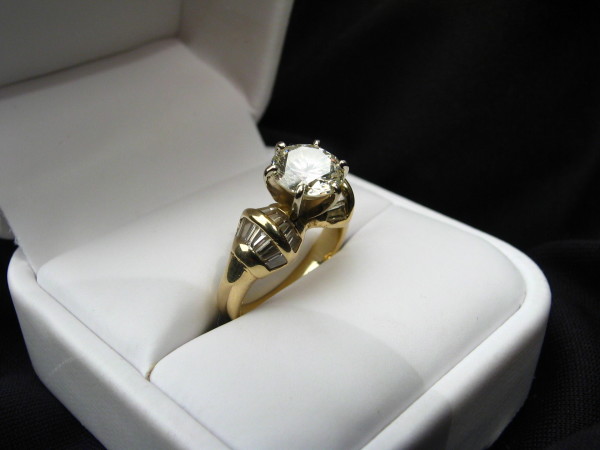- November 9, 2016
- Posted by: Liam Dai
- Category: Uncategorized

Insurance Q & A: Insuring My Wedding Ring
Q: “Hello, RiskBlock. I’m planning on proposing to my girlfriend in the next month. While it’s a big investment, I’ve decided to purchase a rather expensive ring for our engagement and an even more expensive one for our wedding day. After reading a few of your articles on insurance, I think you’d have a great answer to one of my questions: What type of coverage is there for jewelry of this kind?”
Jeff R.
Huntington, NY
A: Congratulations on your engagement. It’s a good sign of future fiscal responsibility that you’d think about insuring one of the most important items for married couples: wedding rings.
While a ring is an important item to cherish, accidents do happen and they can be lost, broken, or stolen. While the sentimental value can’t be replaced, an insurer can help replace a ring that is as similar to the one on your big day.
Let’s look at some key points to understand about insuring your precious items:
- If you already have homeowners insurance or renters insurance, you already have a limit per item that can be lost. If your rings are within that limit, then you may be already covered. However, if the actual cash value is higher than the limit, you may want to look into specific added coverage and itemizing your jewelry.
- Because of market fluctuations (ie. the price of gold), it is a good rule of thumb to have your jewelry appraised by a qualified Graduate Gemologist (preferably one who is also a Certified Insurance Appraiser) every two years so that your amount of insurance reflects the item’s value.
- If you’re purchasing from a high-end jeweler, you will be given a valuation letter that helps you prove to your insurer the item’s value for identical coverage, not similar replacement coverage. A jeweler like Tiffany’s only sells their brand of fine jewelry, so insurers have to replace it with an exact item from Tiffany’s.
The difference between these two types of coverage is significant. Identical coverage (also known as agreed value) obligates the insurer to replace the ring for an EXACT replacement or the cash for the amount you insured it with.
Similar replacement coverage works differently, as it replaces the value at the time of loss. An example to illustrate this is:
Suppose you purchased a one-carat platinum Cartier ring for $45k. If you’re insured for similar replacement, you will receive $5,000 from the insurer with similar replacement cost because a “similar replacement” (one-carat platinum) can be bought from cheaper sources, like the Diamond District or Canal St. And as anyone will tell you, there’s a huge difference between Cartier and Canal St.
- There are exceptions to coverage, as insurers must filter out fraudulent claims (ie. inflated appraisals) but still provide agreed-upon coverage. To file a claim, you will need to provide the date when the loss occurred and information about the circumstances under which the ring was lost. This will include where you were and what you were doing prior to the loss. Also, let the insurer know what steps you have taken to recover the ring before concluding that it cannot be recovered. Be aware that some companies will not cover a “mysterious disappearance,” so if you lost it on honey moon or left it in a hotel on vacation to go out for a romantic swim, it may not covered.
* * *
Insuring your precious items can be a difficult decision, especially in those busy days leading up to your big day. Contact a RiskBlock advisor today so you can focus on what really matters: living a long, happy life with your spouse.
